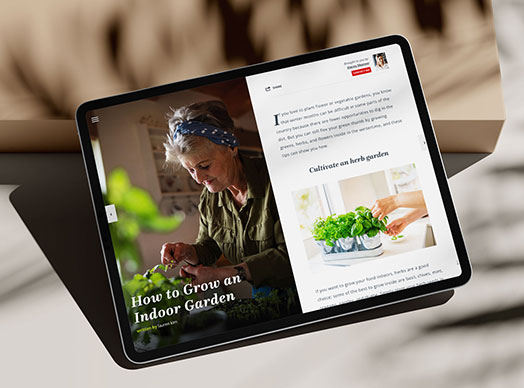Ep. 277: How Learning to Sell Made Lawyer Allison Williams Uber-Successful
How to Run a Successful Business
Who should listen: Regardless of your industry, if you’ve recently started a new business or have thought about being your own boss, and you want to make sure you start off on the right foot, you’ll benefit from the wisdom shared in this interview.
Key idea: Sales conversations are meant to help someone come to a conclusion that is ultimately in their best interests.
Action item: Examine your client avatar and messaging. Ask whether your communication is congruent with your ideal client’s demographics, geographics, and psychographics. If it’s not, then adjust.
When researching keywords and phrases we could use in these show notes, we started with what ended up being our title: “How to Run a Successful Business.” However, perusing the list of suggested words and phrases, we thought it was interesting how many variations of this key phrase were available:
- How to run a restaurant successfully
- How to run a nail salon successfully
- How to run a successful dry-cleaning business
- How to successfully run an Etsy shop
- How to run a successful lawn care business
We were even presented with how to run a successful lemonade stand!
What’s curious about this list, and what our guest Allison Williams makes clear, is that there are basic rules to follow when running any successful business regardless of the industry or type. Allison, for example, is a lawyer who took her start-up law firm from zero to $3M in less than four years following these basic rules—she’s simply implemented them better than most. They are:
- Learn to sell.
- Consistently feed your sales funnel.
- Follow up and nurture all your leads.
- Track your KPIs.
If you’re a student of business or a listener to Stay Paid, then you’re familiar with these rules. But for an attorney who’s opened their own practice, learning to sell, for example, may be a foreign idea. It certainly was foreign to Allison, but now she coaches other attorneys in the fundamental principles of running a successful practice.
Learn to sell
During her interview, Allison talks about being indoctrinated during law school into a culture that stipulates the job of a lawyer is to serve the public—even if it means serving without economic benefit or to your economic detriment. This “trauma wound,” as she calls it, meant she had to rethink what she did in terms of running a business and not just providing a service.
Many people open businesses so they can do what they enjoy doing. It’s their passion that fuels them, but passion alone doesn’t pay the bills. Unfortunately, a large number of small businesses fail at least in part because their owners either didn’t think about what it takes to market and sell their products and services or they didn’t know how.
Allison explains how, despite loving lawyering as much as she does, a near tragedy prompted her to change how she was running her practice . . . and her first step was to hire a business coach.
Consistently feed your funnel
Rather than share more tactics about how she generates leads, Allison took her conversation with us in a different direction by discussing how lead generation doesn’t amount to much if your messaging isn’t on point.
It’s an important idea that speaks to a fundamental truth—you need to know your audience. And it’s not only its demographics that are important. Listen to this part of her interview, and give particular attention to what she says about an audience’s geographics (where you will find it) and its psychographics (how its members think).
Follow up and nurture leads
Never let a lead go. Period.
If you’ve been successful in getting someone’s attention, you want to keep it until they’re ready to act. And let’s face it—at the point you first win their attention, most people aren’t ready to act.
That’s why you nurture your leads.
You want to be the businesspeople remember and reach out to when they need your product or your service.
Allison shares numerous ways businesses can keep themselves in front of their audience but acknowledges that lawyers don’t typically nurture their leads and follow up. (They have that in common with most salespeople.) While she says emails are often ignored because we’re flooded with them, for professionals (like lawyers) email is still an effective way to reach out because that’s how they do most of their business.
Track key performance indicators (KPIs)
Every industry will have its own KPIs that signal success or failure, and every business will (or should) establish KPIs depending on specific goals. But you can’t know if you’re succeeding, failing, or meeting goals if you don’t track the numbers.
At her law firm, Allison tracks the number of impressions, leads, valuable leads, scheduled appointments, appointments that show up, and conversions that become clients. She says the final KPI—conversions—is dependent on your sales conversation.
This is the point in her interview when you’ll really want to give Allison your attention.
Early on, she says that sales conversations are meant to help someone come to a conclusion that is ultimately in their best interests. It’s when Allison gets to the topic of conversions that she talks about how to have those conversations. And she’s very clear—your success is dependent on the type of questions you ask.
You’ll want to listen several times to this section because it is laden with golden nuggets.
Please enjoy, and we’d appreciate it if you would give us a five-star rating and leave a review of this episode on Apple Podcasts. (Not sure how to leave a review? Click here.)
Connect | Resources
- A special offer for Stay Paid Save $200 at staypaidoffer.com/magazine
- Podcast: Crushing Chaos with Law Firm Mentor
- Website: lawfirmmentor.net















 Soundcloud
Soundcloud iHeart Radio
iHeart Radio Spotify
Spotify Spotify
Spotify


